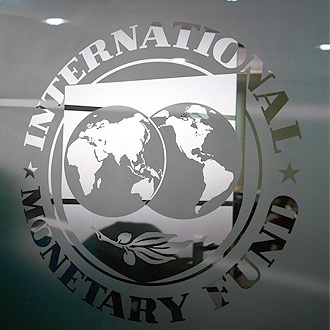
THE International Monetary Fund (IMF) is ready to assist Zimbabwe on the reform path and analysts say the ball is in the government’s court to institute further policy adjustments after meeting the targets set by the global lender.
BY OUR STAFF
Last week, IMF said Zimbabwe had met the structural benchmarks under the Staff Monitored Programme (SMP) — a supervised economic reform plan by the Bretton Woods Institution on Harare.
Head of the IMF mission team to Zimbabwe Domenico Fanizza said Zimbabwe, had met all the structural benchmarks under the SMP and was now working on a medium term economic transformation programme anchored on fiscal discipline, financial sector stability and improvement in the business climate.
A local economist said the targets that were given by the authorities were “dubious”, but the IMF was willing to let the government proceed. He said it was a tall order for government to reduce its wage bill by 52% by 2019 as promised.
“There are very dubious targets and the fund wants to really assist Zimbabwe, that’s why they are less vigorous on the targets. But it is up to Zimbabwe to pull its socks,” said the economist.
He said some of the quantitative targets such as labour reform and severance targets were still ongoing.
“The perception is that Zimbabwe is broke and needs to speed up reforms and that depends on one cardinal fact: to raise resources to pay the IMF first and other lenders,” he said.
- Chamisa under fire over US$120K donation
- Mavhunga puts DeMbare into Chibuku quarterfinals
- Pension funds bet on Cabora Bassa oilfields
- Councils defy govt fire tender directive
Keep Reading
“The IMF is the key to everything. If you pay them first then the other creditors can assist you in paying them off.”
Since 1999 Zimbabwe has not received loans from IMF due to the country’s failure to settle its arrears to the fund. Zimbabwe has an external debt of close to $10 billion.
Analysts say a new programme should be anchored on speedy reforms and consistency, like what happened in Uganda and the Democratic Republic of Congo.
They said the Indigenisation Act remained an elephant in the room.
Government has been undertaking reforms to correct past sins. There are even plans to set up a Compensation Fund to pay white commercial farmers that lost land under the fast-track land reform programme.
Sources said government was now implementing reforms secretly in a bid to circumvent the infighting caused by factionalism in the ruling Zanu PF.
Speaking at the IMF breakfast meeting on Thursday, senior economist Ashok Chakravarti said it was good to zero in on government policy but there should also be focus on the domestic side.
“The country has natural resources and human capital, so a growth rate of 1% shows that there is something wrong somewhere,” he said.
“The country has received Foreign Direct Investment of $500 million for some time but other countries in the region are ahead of us.
“The country has received 50 delegations but it has low investments.”
Fanizza said Zimbabwe could not wait any longer as it had a huge human capital base, in fact, bigger than the rest of Africa.
He said it was difficult to understand why the country had been struggling for the past 15 years. He said economic transformation required mobilisation of external support for it to be successful. Fanizza said a front-loaded economic programme was key to get finance from the international community.
“You need to engage the financial community. Zimbabwe has the capacity to get to the finishing line,” Fanizza said.
MBCA Bank’s Charity Jinya said Zimbabwe had done the warm up through the completion of the SMP, but the country was not blind to its problems that included the El Nino-induced drought.
Nestle Zimbabwe chairman Kumbirayi Katsande said the process of re-engagement with multilateral lenders such as the IMF was the beginning of a solid step that brought people together and the country needed to move with speed.
People’s Democratic Party secretary for finance and economic affairs, Vince Musewe said Zimbabwe needed a Marshall Plan “which must be an inclusive and well-thought-out plan to address food security and poverty alleviation, revive agriculture in a sustainable manner, reindustrialise the country, rehabilitate our infrastructure and create jobs and sustainable incomes”.











